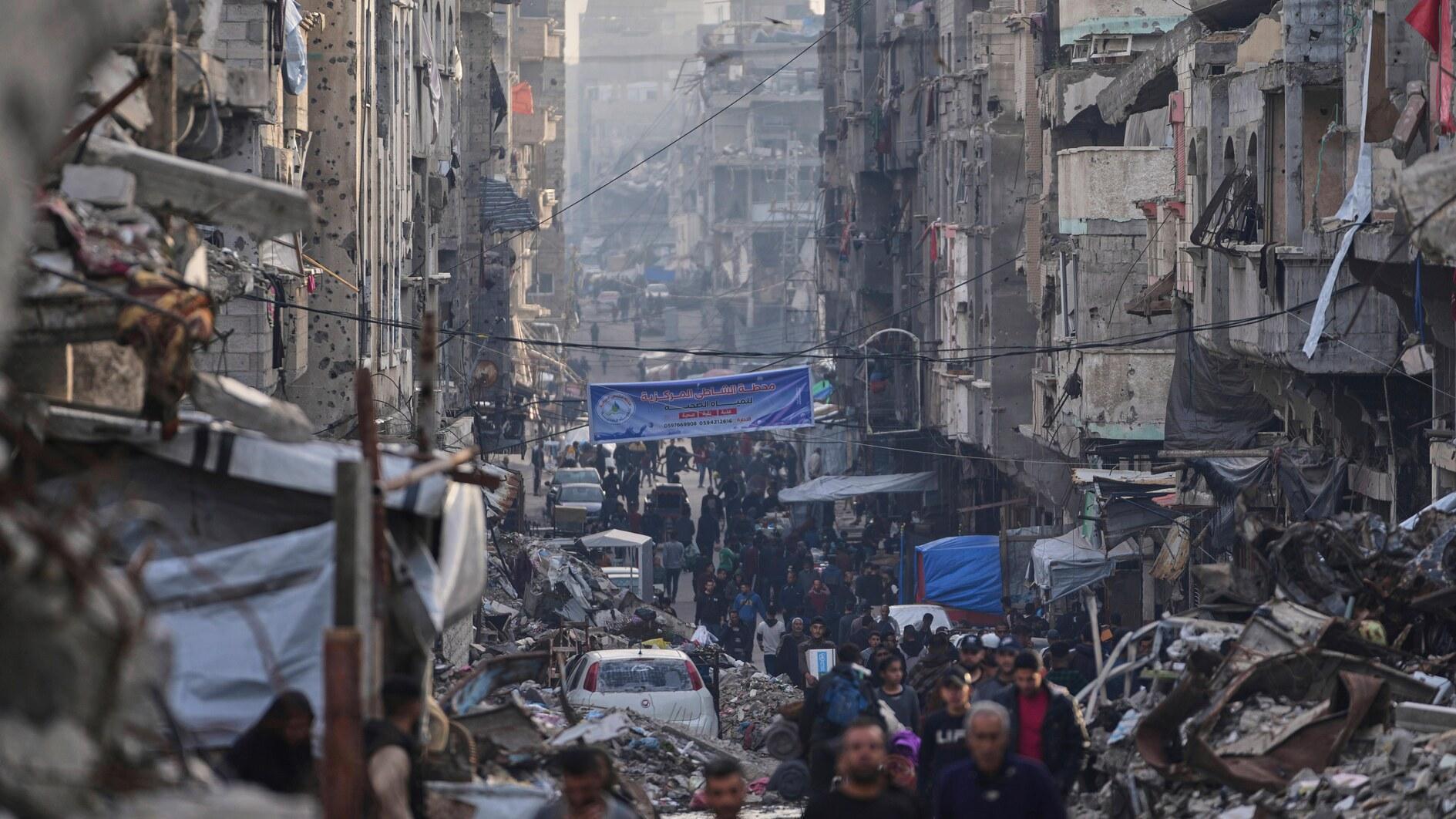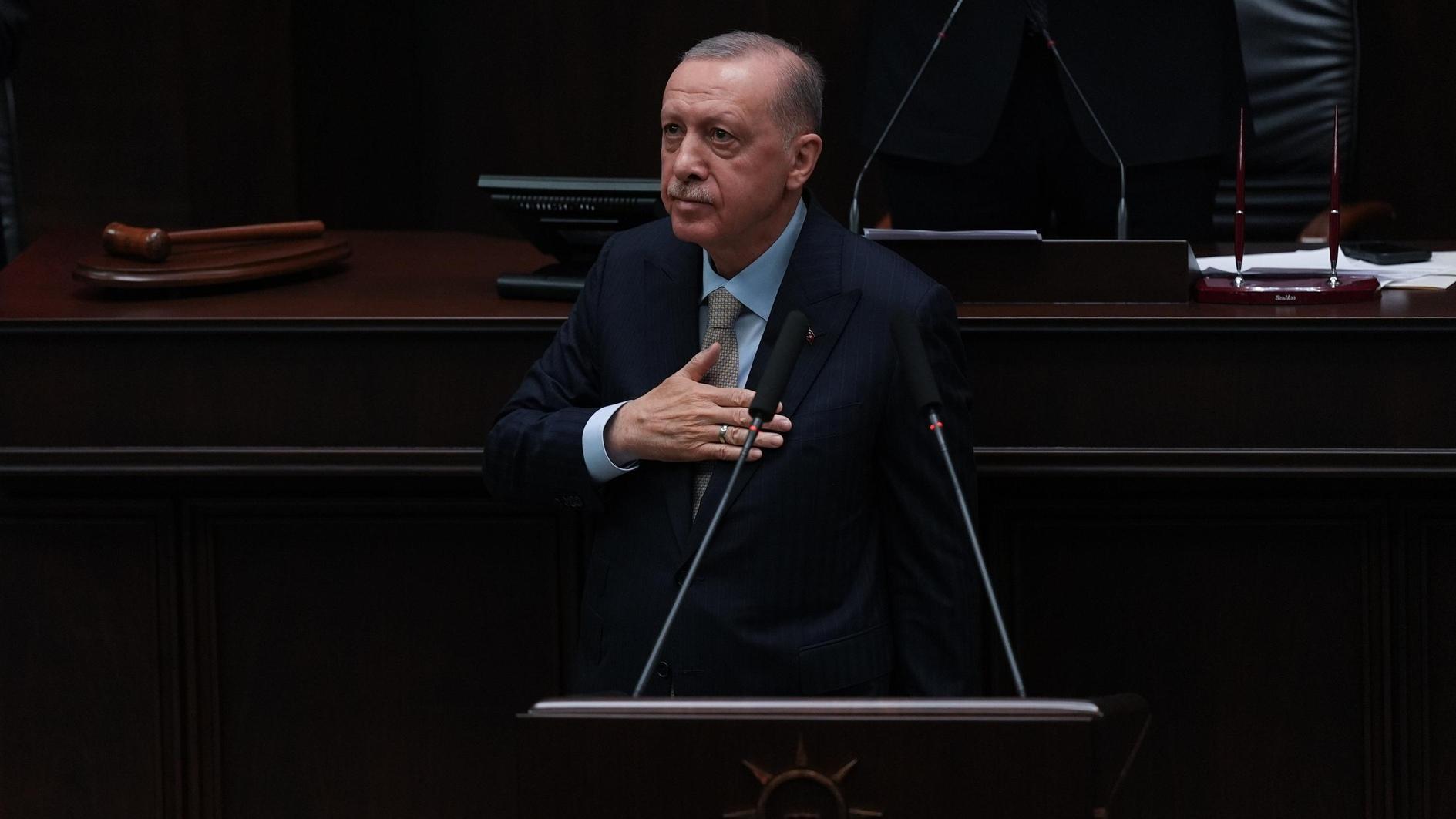US says 'now is the time' to end Gaza war
JERUSALEM

U.S. Secretary of State Antony Blinken said on Wednesday that "now is the time" to end the conflict in Gaza and urged Israel to avoid further escalation with Iran.
Israel is currently engaged in conflict with Iran-backed Hamas in Gaza and Hezbollah in Lebanon and has pledged to retaliate against Iran's Oct. 1 missile strike.
In Lebanon, AFP correspondents reported several Israeli airstrikes on Tyre after the military warned residents of parts of the coastal city to flee ahead of operations targeting Hezbollah. The warning sparked a new exodus from the city, with footages showing thick black smoke rising after the strikes.
"The situation is very bad, we're evacuating people," said Mortada Mhanna, who heads Tyre's disaster management unit.
"You could say that the entire city of Tyre is being evacuated," added Bilal Kashmar, the unit's media officer.
Blinken's visit to the region is his 11th since the start of the war in Gaza and his first since violence between Israel and Hezbollah escalated to all-out war late last month. Previous U.S. efforts to end the Gaza war and contain regional fallout have failed.
The war in Gaza began with Hamas's Oct. 7, 2023 attack on Israel, resulting in 1,206 deaths, mostly civilians, according to Israeli official figures. Israel's retaliatory offensive has killed 42,718 people in Gaza, also mostly civilians, according to figures from the Hamas-run territory’s health ministry, considered reliable by the U.N.
"Since Oct. 7 a year ago, Israel has achieved most of its strategic objectives when it comes to Gaza... Now is the time to turn those successes into enduring, strategic success," Blinken said as he left Israel, following meetings with Prime Minister Benjamin Netanyahu and other top officials.
On aid to Gaza, Blinken noted progress but stressed the need for more and sustained efforts. He urged Israel to respond to Iran's missile attack in ways that avoid further escalation.
After Israel, Blinken began a visit to Saudi Arabia, which has paused talks on a normalization deal with Israel until a Palestinian state is established. Blinken described an "incredible opportunity in this region to move in a totally different direction," with Saudi Arabia potentially normalizing relations with Israel.
Blinken will then visit Qatar and Britain for talks with Arab counterparts on the Gaza and Lebanon wars.
Hostages still in Gaza
In a meeting with Netanyahu on Tuesday, Blinken urged him to leverage the killing of Hamas leader Yahya Sinwar in Gaza to work towards a ceasefire. Sinwar orchestrated the Oct. 7, 2023 attack that triggered the Gaza war. Militants also took 251 hostages back into Gaza, with 97 still held, including 34 declared dead by the Israeli military.
Blinken "underscored the need to capitalize" on Sinwar's death, emphasizing securing the release of all hostages and ending the conflict to provide lasting security for both Israelis and Palestinians.
Netanyahu noted that Sinwar's death "could have a positive impact on the return of the hostages," according to a statement from his office.
Blinken also pushed for increased aid to Gaza amid growing concerns for the tens of thousands of civilians trapped by fighting in the northern region. Israel's air and ground assault in northern Gaza aims to prevent Hamas militants from regrouping.
The only medical facility still functioning in the targeted area lacks "medicine or medical supplies," said Kamal Adwan Hospital director Hossam Abu Safia. "People are being killed in the streets, and we can't help them. Bodies are lying on the streets."
The World Health Organization postponed the final phase of a polio vaccination drive in Gaza due to "intense bombardment" and violence in the north.
Hezbollah heir
After nearly a year of war with Hamas in Gaza, Israel turned its focus to Lebanon in late September, aiming to secure its northern border amid Hezbollah attacks.
Israel increased airstrikes on Hezbollah strongholds and deployed ground troops, with 1,552 people killed since Sept. 23, according to Lebanese health ministry figures.
Hezbollah continued its attacks on Israel, launching rockets at an Israeli military intelligence base near Tel Aviv. The Israeli army announced it had killed the Hezbollah cleric expected to succeed slain leader Hassan Nasrallah in an airstrike three weeks ago.
Hezbollah has not confirmed the death of Hashem Safieddine, but a source close to the group mentioned he had been out of contact since the strikes.
"We have reached Nasrallah, his replacement, and most of Hezbollah's senior leadership," Israeli army chief Lieutenant General Herzi Halevi said.
















